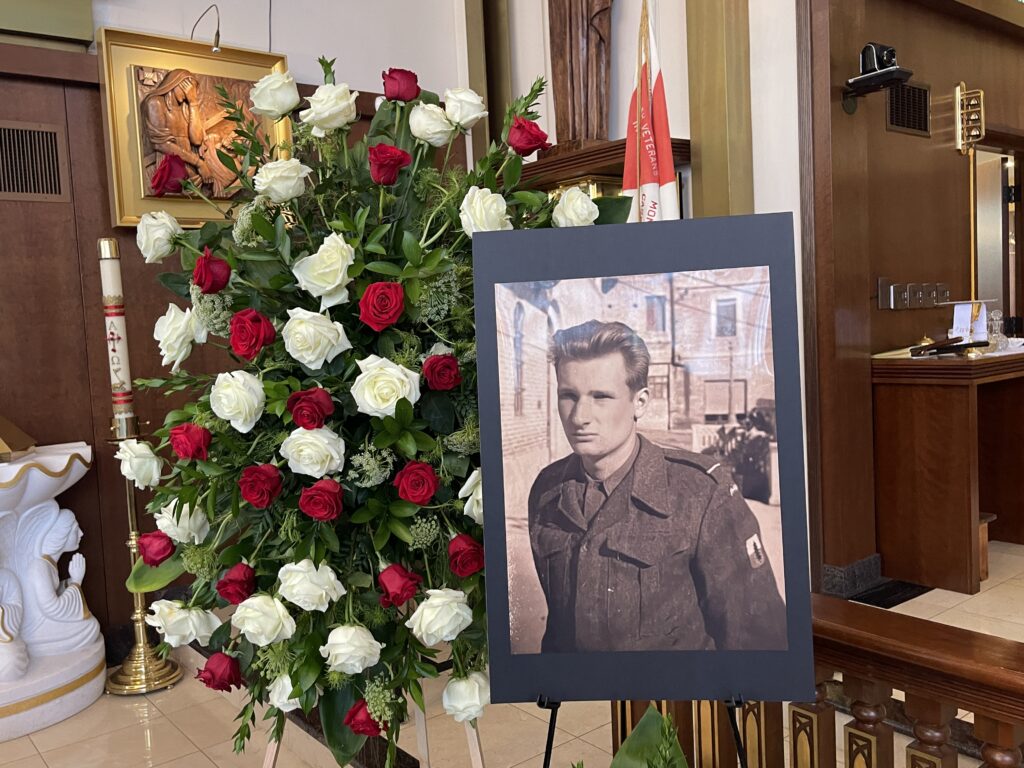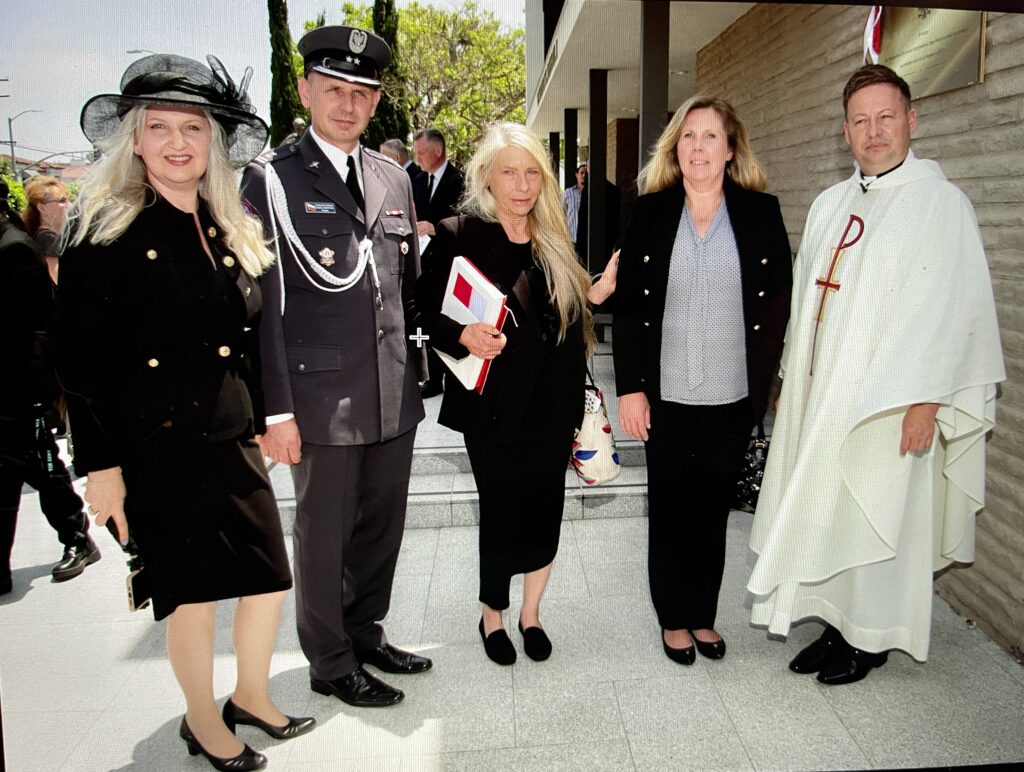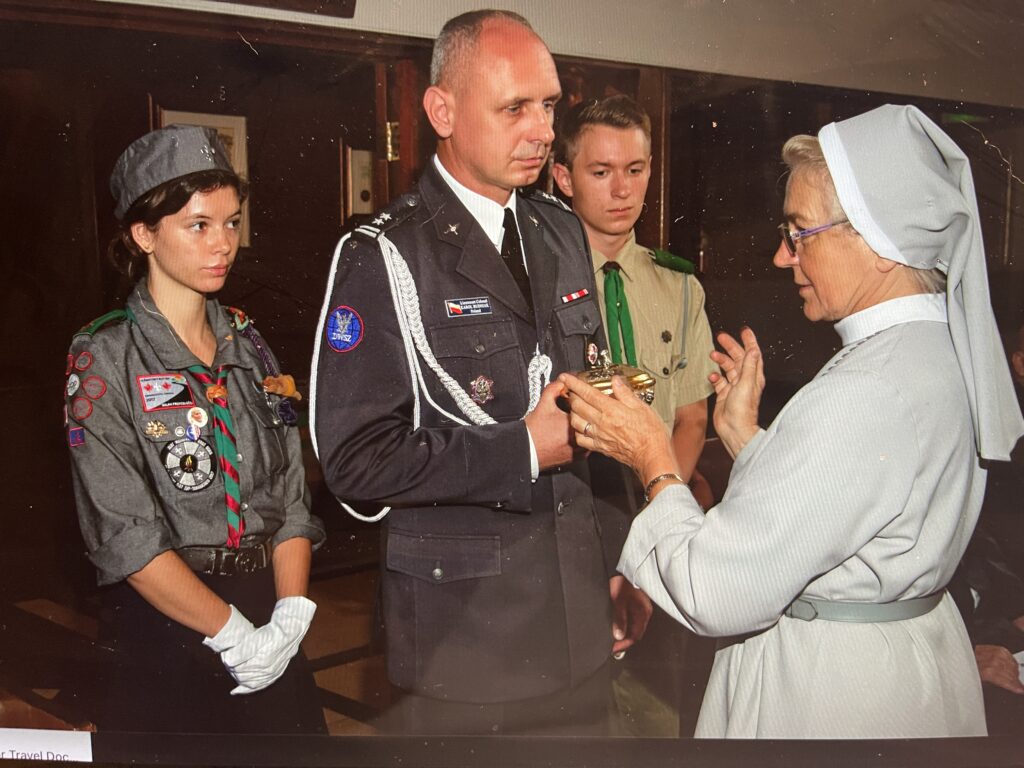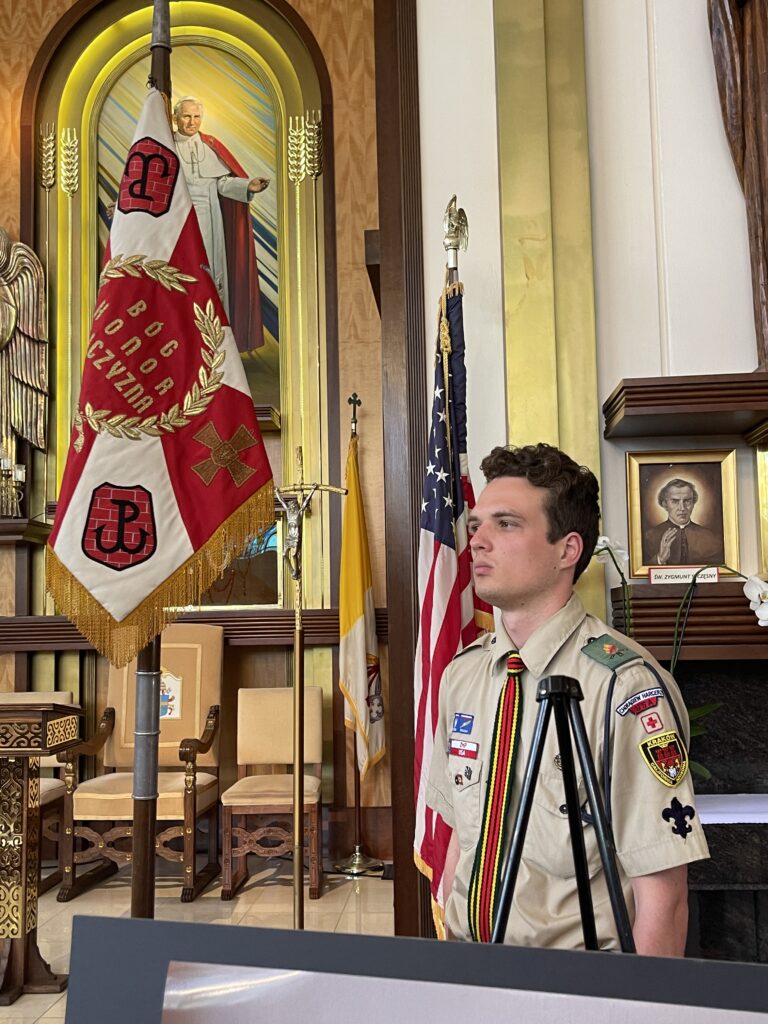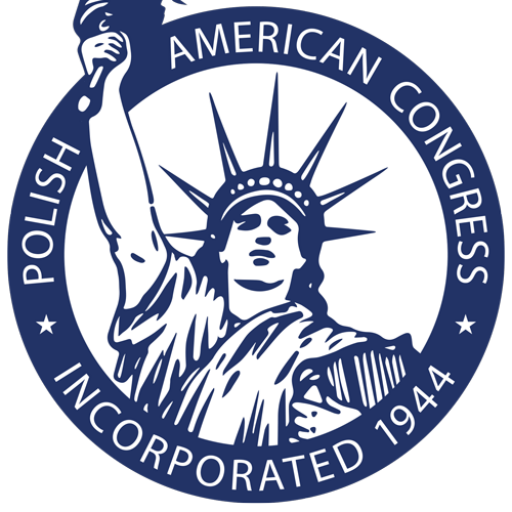In Los Angeles, at the funeral of Polish Home Army soldier Andrzej Stefański, government representatives of the Republic of Poland offered official condolences on behalf of a grateful nation for the service of this Polish Freedom Fighter.
The funeral Mass for this veteran was celebrated in Polish and Egnlish. Home Army soldier Andrzej Stefański was born on October 10, 1925, and died on June 19, 2023 in Los Angeles.
In the Warsaw Uprising he used the pseudonym, Bard. He fought in Żoliborz in the communications platoon of the Second District “Żywiciel” of the Warsaw District of the Home Army – the “Żaglowiec” group.
His greatest values were his health and the Catholic faith.
He was the son of Stefan Stefański, a colonel and Polish cavalry veterinarian, and Maria Stefańska. When the war broke out he was 14 years old, at the age of 16 he joined the Home Army.
He fought in the Warsaw Uprising for 60 days, from August 1 to October 1, 1944, then he stayed in the German prisoner-of-war camp in Moosburg, Germany. He was freed from the camp and went to Italy. He lived in England, then moved to the United States, he arrived on the ship Flanders, in 1958.
The Consul General of the Republic of Poland in Los Angeles, Marta Wolańska and Poland’s Deputy Defense Attaché in Washington, Colonel Karol Budniak, attended Andrzej Stefanski’s funeral on Saturday, July 22 nd.
Colonel Budniak, Deputy Defense Attaché, read a letter from Minister of Defense Błaszczak: “The memory of those who fought for a free Poland remains alive. For the soldiers of the Polish army, they are a model of soldier’s ethos, devotion to their homeland and fidelity to their ideals. I pay tribute to Andrzej Stefański to his family and loved ones and express my deepest respect for his achievements and attitude. I bid farewell to one of the last representatives of the steadfast generation, co-creating the history of the second Polish emigration. Honor to his memory!”
Polish veterans of the Second World War often could not return to their homeland, because of the communist regime in post-war Poland. Though they spent their whole lives abroad, they spoke Polish fluently and cultivated Polish traditions and customs on a daily basis. All this they passed on to the next generations. Above all, the veterans valued freedom. Many of their comrades in arms paid the price of freedom with their lives.
Andrzej Stefanski’s grandsons delivered moving speeches at their grandfather’s funeral.
Suzan Stefański, the bereaved daughter of the Home Army veteran, invited the gathered for refreshments in the parish hall, Polish dishes were prepared by Teresa Turek.
Malgorzata Margo Schulz
Polish American Congress
National Vice President for Public Relations
